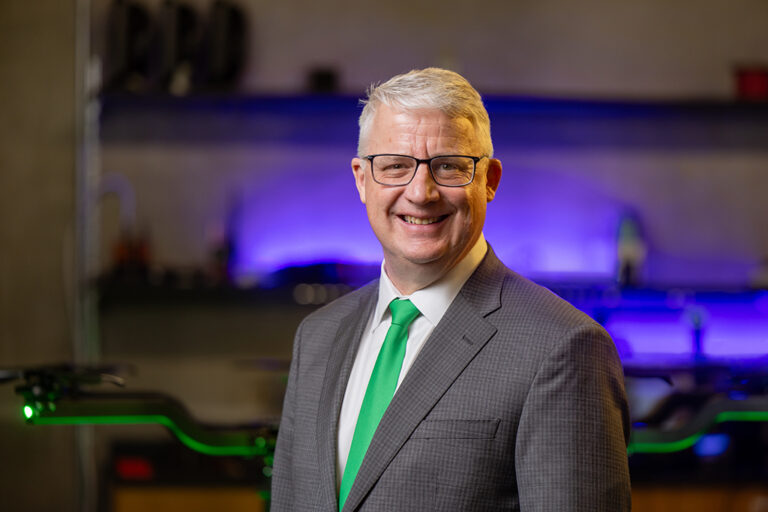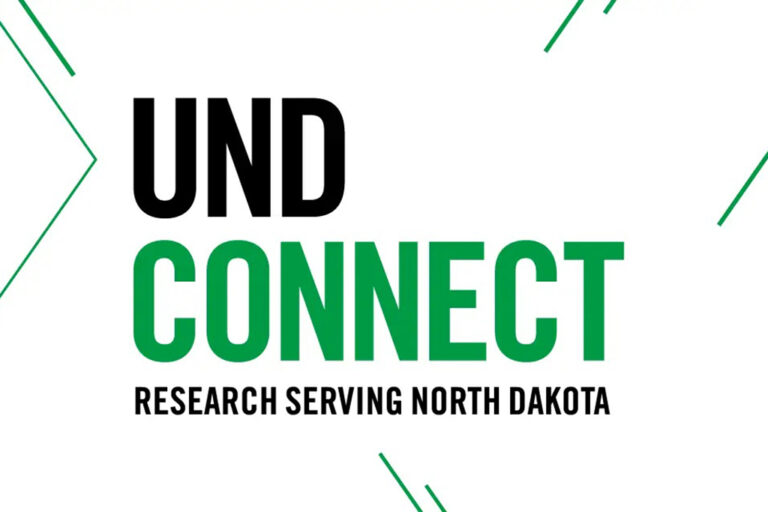UND professor helped launch wireless age
Dedicated teacher Saleh Faruque now busy publishing popular how-to series on radio frequencies

Saleh Faruque likes to say he’s an engineer by profession and a teacher by choice.
A professor of electrical engineering, Faruque holds 19 patents and recently published his sixth book in a series on radio frequencies.
But his calling is to teach.
“I have always taught,” Faruque said. “While I worked in the telecom industry full-time, I was an adjunct professor at various universities. My definition of teaching is a blend of theory and practice with hands-on training that brings students up-to-date in key concepts, underlying principles and practical applications. Teaching theory alone is not enough.”
His philosophy has brought him numerous teaching awards – and students who stay in touch for decades.
“They call me when they get a promotion,” he said.
Invested in students
Faruque teaches undergraduate and graduate courses in electronics and telecommunications, along with directing student research. He’s authored more than 135 publications, seven books, received multiple awards and been active in service.
“Students are the future,” he said, “I give time to students. I feel most comfortable in the classroom.”
Teaching led him to the writing of his most recent books. He published his first book on cellular mobile systems engineering in 1996 as a result of his research at Nortel, which helped pioneer cellular technology. Other publications followed.
A few years ago, Faruque thought about turning his lectures into books, and contacted Springer Publishing. They liked the idea and suggested a series. He has just published the sixth and final book in the series, “Radio Frequency Cell Site Engineering Made Easy.” The books have been well-received, and he’s been contacted by other publishers. Now he’s helping his students publish as well.
“I’ve translated my teaching into books that combine theory and practice,” he said. “Students seem to like the books. They’re easy to understand and have a lot of pictures and diagrams.”

Industry experience
His experience in industry makes him a better teacher, Faruque believes. He grew up in what is now Bangladesh, where he earned his bachelor’s degree in physics and master’s in applied physics. He believes that electrical engineering is applied physics and a time-honored discipline. So, after coming to Canada, he earned both master’s and doctoral degrees in electrical engineering. Then he taught in France.
He joined Bell Northern Research and then Nortel Corp., just as cellular technology was developing.
His professors, he said, helped propel his career in industry and earn patents; “I apply those teaching techniques today,” he said. “My debt to them can never be repaid.”
“Nortel gave me practical, hands-on experience in wireless communication,” he said. “Cell phones were just a concept in those early days.”
He spent 20 years at Nortel in the wireless division, doing research and development in Canada and Texas. He obtained 18 patents in wireless communications and earned the Nortel President’s Award for Innovation and Excellence. As manager of RF engineering, he developed internal training programs and wrote his first book entitled, “Cellular Mobile Systems Engineering.”
“It was the golden ’90s, when all telecom companies were rising rapidly,” Faruque remembered. Nortel stock was soaring, times were heady, and startups abounded. He accepted an invitation to join a startup as chief technical officer in 2000.
“I couldn’t turn it down,” he said.
Tech to teaching
Then the dot.com bubble burst. “My adventure came to an end,” Faruque said. The startup failed, and Nortel began its demise. But challenges come to those who can tackle them, Faruque believes. He chose to channel his love for teaching, and joined what is now the UND College of Engineering & Mines in 2002. It was a good fit, and his experience in industry complemented his teaching.
“UND has been wonderful to me,” he said. “I feel blessed. I’ve enjoyed the best of both worlds – industry and education.”
Today’s students, said Faruque, tend to keep up with the latest technological developments, and he focuses on guiding them and their research.
“Many of us have grown familiar with using telephone, radio, TV, computers, Internet, WiFi, cell phone, GPS, etc.,” he said. “The history of their advent is crowded with momentous events that took place in the United States because of its social, cultural, economic and educational policies. The insatiable desire to know the unknown and see the unseen has propelled mankind to ever newer inventions. If we can preserve and promote these values in academic institutions, the United States will continue to lead the world.”


